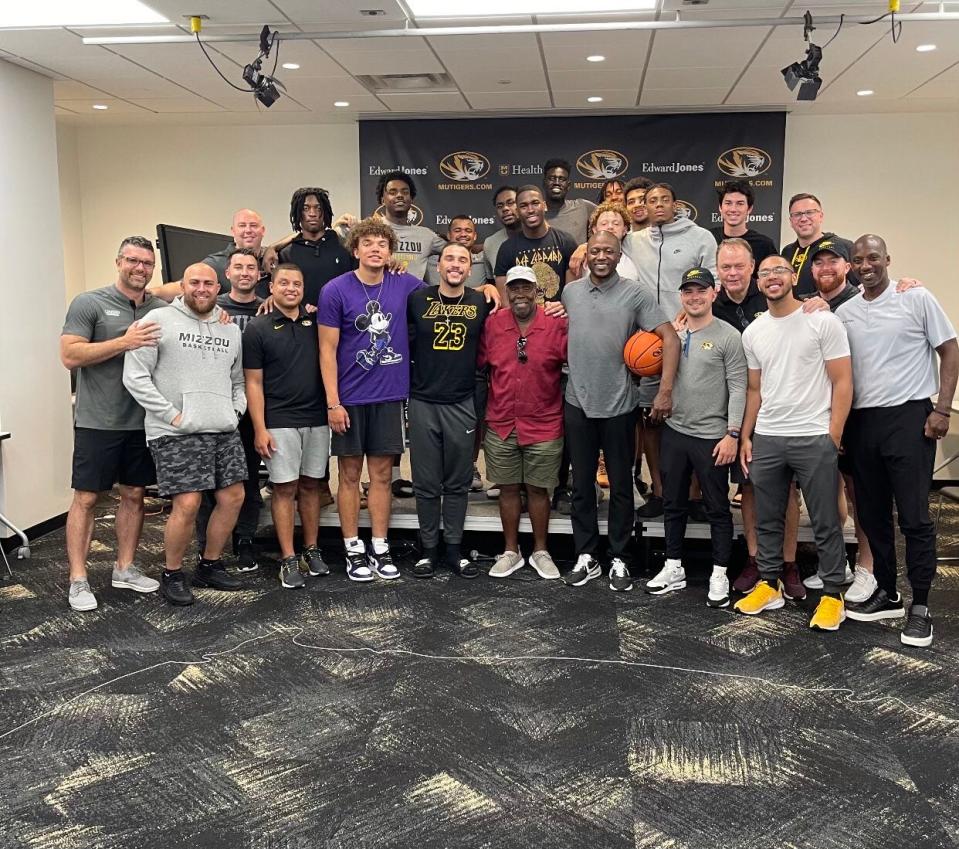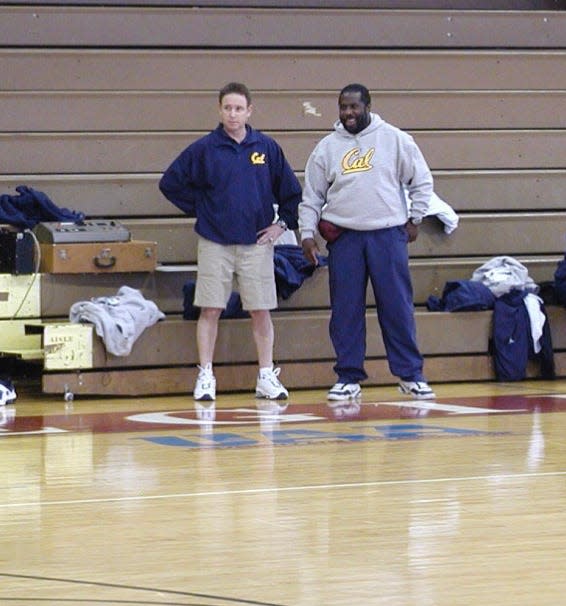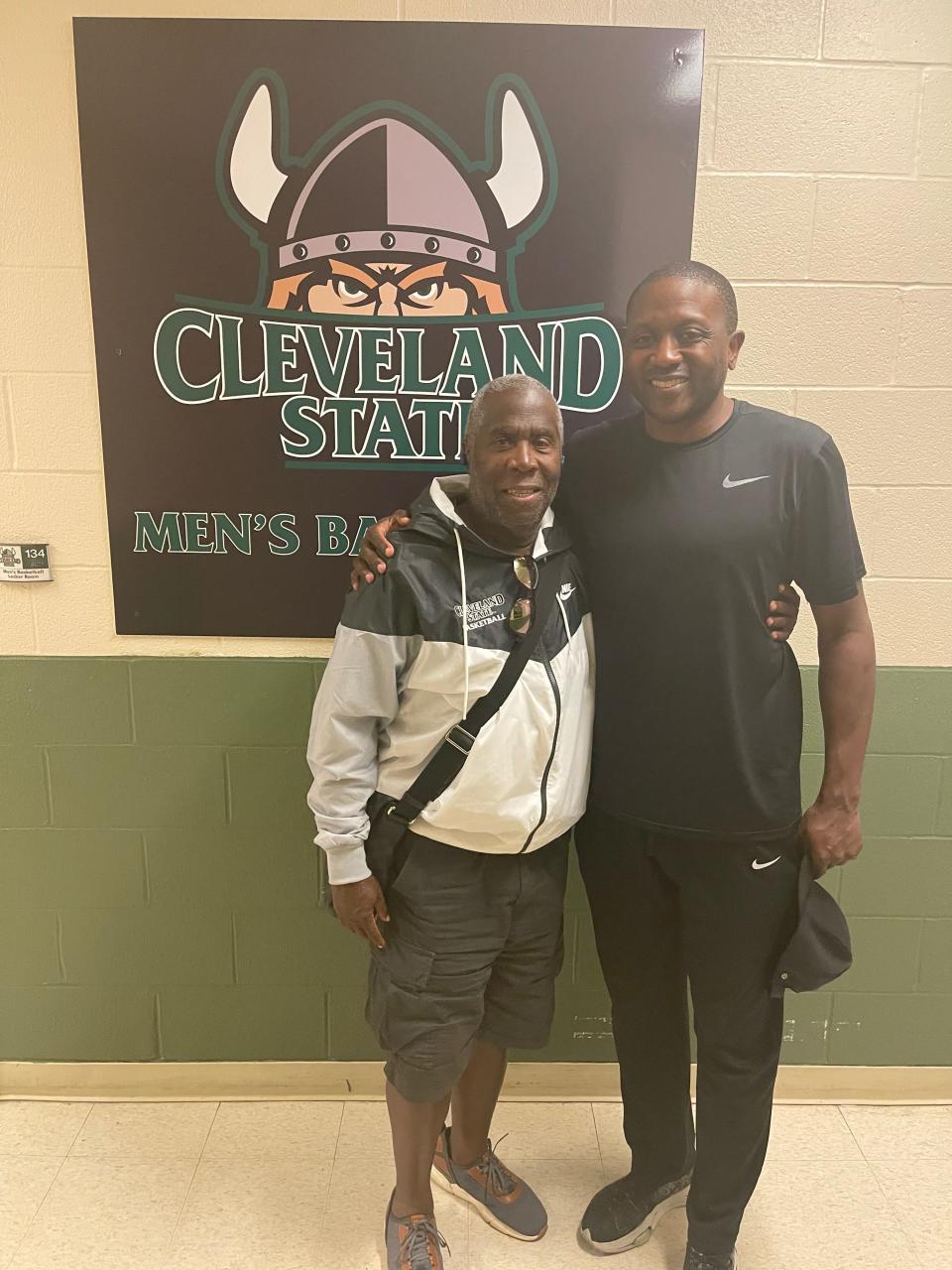How Dr. Joe Carr's impact is helping Mizzou basketball peak entering 2023

When Joe Carr was growing up in his Washington D.C. neighborhood, he received some career advice from a childhood friend.
"'You always talking to people and trying to read people's minds and stuff like that,'" Carr said, recalling his conversation. "'You ought to go to school and study psychology and blah, blah, blah.' And I looked at him like he had lost his mind."
That career advice came full circle after Carr graduated from Washington State with his Ph.D. in psychology. His childhood friend had a basketball team; it was the first team Carr worked with.
That childhood friend was longtime and legendary Georgetown coach John Thompson. He won 596 games coaching the Hoyas. This includes the 1984 NCAA national title with Carr's assistance.
"We won a national championship," Carr said. "I got a little something-something."
Carr has worked with thousands of teams during his career. The latest is the 2022-2023 Missouri men's basketball team, where Carr began working with the Tigers after Dennis Gates took over as MU's head coach.
Carr's work can be seen on the present-day courts of Mizzou Arena. His best work of the year was on display during MU's wins over then-No. 16 Illinois on Dec. 22 and then-No. 19 Kentucky on Dec. 28.
The psychologist found a way to help Missouri peak this season. Perhaps more impressively, he found a way to help the Tigers bounce back from their only loss of the year, a 95-67 beatdown at home by the hands of loathed rival No. 6 Kansas.
"That was the most important game of our season," Missouri senior guard Ben Sternberg, who has worked with Carr at Cleveland State and Missouri, said. "Not the actual game, but how we bounced back from that game."
Gates has been working with Carr since he was a player at California-Berkeley from 1998 to 2002. At Cal, Gates played with players from all walks of life like AJ Diggs and Ryan Forehan-Kelly and helped lead them as captain.
However, he said Carr was instrumental in connecting the dots on a team with players from Israel, Chicago, Washington D.C. and more.
"Me as a captain, I was able to lead, but there were certain things that I wasn't equipped with as a player that sometimes you have on your shoulders," Gates said. "I thought that was important to gain the information, and he was able to provide that and fill in the gaps between maybe the head coach, the staff, making sure the staff was on the same page, but also making sure players were on the same page with the overall goal, connectivity and also the unselfish spirit."
Carr's experience began with Georgetown but stretched across all realms of sports.
He helped create the NBA Rooke Transition Program, which is a mandatory four-day program that comprises a series of presentations developed by the NBA and the National Basketball Players Association.
Carr began the program in 1986, and it was a blueprint for transitional programs across all pro sports. These milestones shaped how Carr would use his psychology, which is different than how normal psychology operates.
"I'm kind of a unique psychologist in the sense that everything is not about loving and caring," Carr said. "It's about diving after loose balls. We have special names for things that we do. It's a good blend of performance and also about relationships."

Carr returned to the college scene in the 1990s, and eventually met Gates through then-Cal coach Ben Braun. In his time working with different teams, Carr brought his work to Cal and Gates said he immediately knew that he wanted to work with Carr wherever he would go in life.
"It was refreshing to be in the place where Dennis was, and to see his growth and to see how he impacted his teammates," Carr said. "I started thinking, if we could work on the college level and help kids to kind of be relationship-builders and to accept coaching and all the things that go with R.A.R.E., this could really be a good program."
The acronym "R.A.R.E." is something Carr developed. It stands for Relationships, Accepting challenges, Recovering from mistakes and Executing coach directives.
It's just one aspect Carr brings to teams when he works with them.
Carr can't go too much into detail about how he works with teams and players, as there's doctor-patient confidentiality, but Sternberg attested to how some of the sessions Carr holds are uncomfortable at first. However, the team always grows closer after sessions with Carr.
He made the same impression on Gates as an 18-year-old freshman at Cal, and Gates' relationship with Carr showed when they met with the press last week. Gates was complimentary of someone who has taught him so much but was open with the fun side of their relationship.
"What Doc brings is the team-building part of it that's unique," Gates said. "Obviously his resume is long and extensive, as you can see his gray hairs."
Carr credits Gates with being open to including sports psychology in his coaching. It shows Gates doesn't stigmatize mental health, and that he wants his players to have the comfort of having genuine conversations about themselves.
That's important in today's rosters of athletes who, as Gates noted, have gone though a modern society that has navigated the aftermath of the September 11 terrorist attacks and, most recently, a pandemic while trying to focus on a goal of winning a championship.
"Those are traumatic things that we kind of sometimes, unfortunately, sweep under the rug, but we don't understand how impactful it is from day-to-day or even a performance standpoint," Gates said. "We have kids from all walks of life. We want to be able to merge our cultures."

So far, earning a No. 20 ranking, Missouri has merged its cultures with a roster of transfers and a new staff.
While sports psychology isn't a new trend — MU currently has a staff of accredited sports psychologists available to all athletes — Gates wanted Carr specifically because of their relationship. There's a trust Gates places in him that shone through as MU needed to bounce back after its loss to Kansas.
The outcries from across the basketball landscape were real. Missouri's 9-0 start was called fraudulent after the Jayhawks handled the Tigers.
The response after the loss was something Sternberg credited Carr with. MU left that in the past and proved it with wins over the Illini and Wildcats.
"We didn't care what Twitter said," Sternberg said. "We didn't care about none of that because we knew that we believe in each other. Obviously, the last two games proved that."
Winning this year has put Missouri men's basketball back on the map. Carr's ability to navigate mental health in sports has played a part in that revival.
"A team is a microcosm of society," Carr said. "Kids come together from different walks of life with different situations. The pressures of the games, the ups and the downs, and the good times, sometimes you need tools to manage the icy conditions."
This article originally appeared on Columbia Daily Tribune: How Dr. Joe Carr's impact is helping Mizzou basketball peak entering 2023

